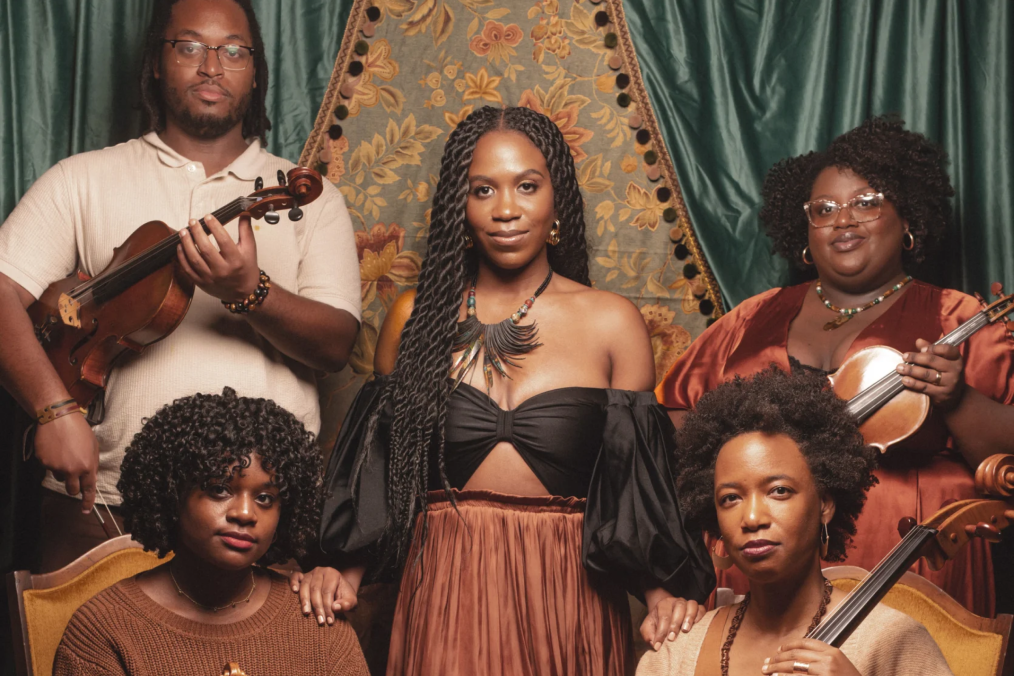How one Obama Scholar promotes pluralism through her work with refugee women

At The Obama Foundation, pluralism means more than tolerating differences—it means embracing and engaging with others to find common ground and drive impactful change. In the lead-up to the 2024 Democracy Forum on Thursday, December 5, we had a conversation with 2024-2025 Columbia University Scholar Joséphine Goube, Founder and CEO of Sistech (Opens in a new tab) , an organization that helps refugee women obtain access to gainful employment in the technology sector. She shared how pluralism shapes her work and life, offering insights on fostering inclusive communities and collaborating across divides.
-
How do you define pluralism in your work, particularly at Sistech?
Pluralism at Sistech begins with a commitment to recognizing, respecting, and celebrating the diverse identities and talents of refugee women. We ensure that our cohorts reflect varied backgrounds, encompassing differences in religion, nationality, and political viewpoints, to mirror the richness of the communities we serve.
For refugee women, pluralism creates opportunities to thrive socially, economically, and politically; for employers, it transforms diversity into a dynamic strategy for innovation and excellence. This is particularly crucial for many refugee women, who come from non-pluralistic societies and may lack experience in how to navigate pluralistic environments effectively.
-
What advice would you give to someone who wants to practice pluralism in their community or workplace?
Start by questioning stereotypes through facts and real conversations. Practice genuine curiosity and empathy, listening to the stories, struggles, and aspirations of those different from you.
In the workplace, actively promote fair representation on boards and prioritize diversity in hiring practices. In communities, encourage respectful dialogue, especially when disagreements arise. Pluralism requires action—finding ways to collaborate across differences and creating spaces where everyone can thrive.
-
How does pluralism intersect with democracy?
For me, pluralism means embracing the belief that, even if I don’t share your views, political stance, or religion, I will stand up for your right to exist as an equal. Together, we can be united by a shared commitment to ensuring everyone has a voice in shaping society and its future.
Paradoxically, pluralism enforces that our differences are the very reason we must strive to ensure that we enjoy the same rights and dignity. It’s essential for democracy, where the health of society is measured by how it treats its most vulnerable.
At Sistech, our mentoring and training programs foster connections between refugee women and professionals, breaking stereotypes and building mutual understanding. We also amended our bylaws to align our mission with democratic ideals and the Universal Declaration of Human Rights, affirming our commitment to pluralistic, apartisan values in the face of degrading political narratives.
-
What themes around pluralism are you most excited to discuss at the 2024 Democracy Forum?
I’m eager to explore bridging divides in democracies where current political forces often seek total victory. We need to focus on uniting people across differences to tackle shared challenges like climate change and maintaining healthy democracies.
For example, I do think that people working on climate change don’t think of fostering diversity as their priority interests and yet, we know that our work complements each other. Similarly, I am interested in working with people in rural villages fighting for local public services to be sustained, and who would benefit from relocation of refugee families within their communities.
We need to move beyond ideological silos by listening to each other and learning from those who create safe spaces for diverse perspectives. These spaces can help us break free from biases and find innovative solutions. Active listening is a powerful tool that transforms pluralism from an abstract ideal into actionable collaboration.
Listen to our changemaker-curated playlist for some inspiration!

Sign up for the latest on the Obama Foundation
More stories
All Stories
- Health & Wellbeing
- Alumni

- The Arts
- Leaders

- Alumni
- The Obama Administration